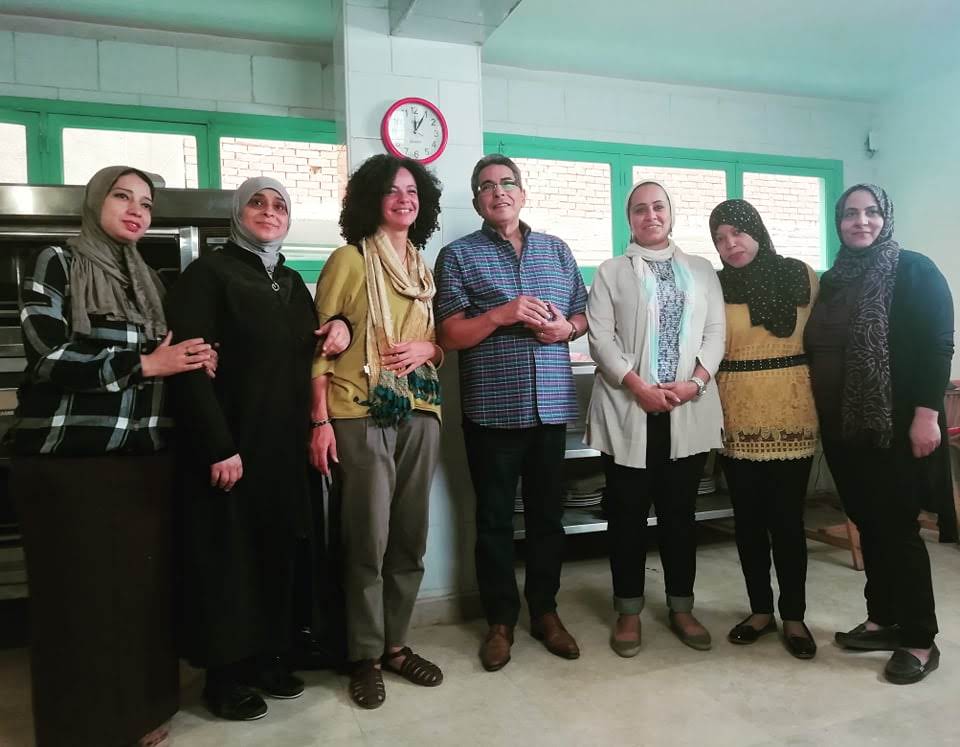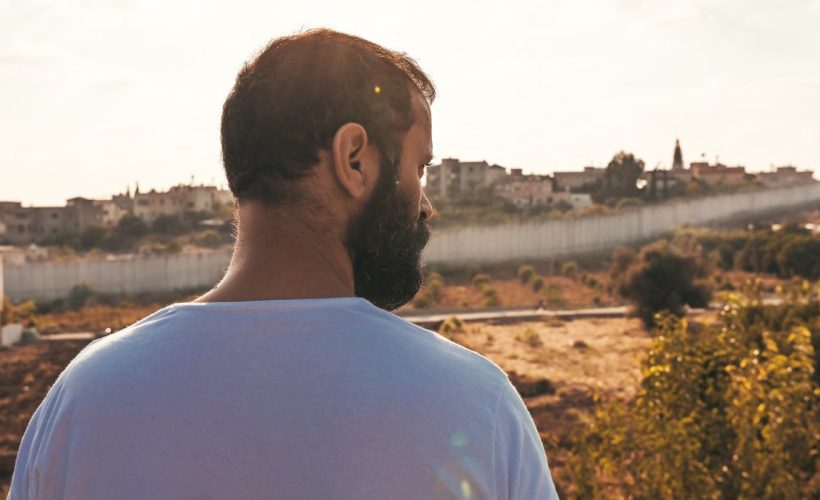Society
7.9.2020
Dawar Kitchen, a community kitchen to empower refugees and egyptian women in Egypt

Cooking as a tool for dignified employment and social integration, is at the heart of Dawar Kitchen mission, an Egyptian community kitchen that offers catering for companies made by refugee and Egyptian women.
Launched in 2018, Dawar Kitchen is a social and community kitchen that offers its catering services to businesses, NGOs and foreign embassies. Located in Ezbet Khairallah, one of the biggest unofficial settlements in Cairo with nearly one million inhabitants, the social enterprise employs refugee women from Syria, Sudan and also low-income Egyptian women. More than a dignified job, Dawar Kitchen offers them the opportunity for social integration through culinary heritage, as explained by the structure’s Executive Director, Nada Al Shazly.
How was the idea of Dawar Kitchen born ?
Dawar Kitchen is an initiative born within Dawar for Art and Development, an association where we used to organize cultural and well being workshops for refugee women. We knew that cooking was a great relief for them and also an act of connection and community. But at the end of the day, when they had to return home, they still faced many difficulties in finding sustainable employment. So we started looking for projects to support them economically, as we did it psychologically. We started selling mkhallal [مخلّل], preserved vinegar products that Syrian women are famous for. But this wasn’t a sufficient and sustainable source of profit. So we decided to set up a community kitchen where Syrian and Egyptian women in need would receive professional training in cooking, and offer their catering services for company events.
Posted by مطبخ دوار Dawar Kitchen on Friday, April 5, 2019
What were the difficulties you faced during the process?
We had quite a bunch of difficulties because of our location in an unofficial settlement, it caused us some logistic problems. People often had negative perceptions about it or thought it was unsafe and dangerous, but actually it was one of the safest areas I had ever worked. And many other NGOs working with projects there are well accepted by the local people. We thought we would have difficulties with syrian women and egyptian working together, but it was not the case at all as they were getting along very well and developed very strong bonds.
Why use food as an empowerment tool?
Syrian cuisine is very popular in the world and especially in Egypt. After the beginning of the civil war, many Syrians came to Egypt and those who started doing business in food and beverages did very well. In addition, Syrian cuisine is renowned to be healthy, with many dishes that can satisfy the needs of vegans or vegetarians, which is why we have chosen to go this way. We work with Syrian women on traditional recipes they inherited from their mothers, that we try to document and teach to Egyptian women as well. We also give them the opportunity to be creative by improving or modifying these recipes to meet different demands. We really have a participative approach in which every woman can innovate. Dawar Kitchen is not just a workplace, it is a space where they belong and where they feel safe. Cooking is also an indirect way of social integration, because when people start cooking together, they start sharing their stories and this process of sharing personal heritages around food is very interesting.
Posted by مطبخ دوار Dawar Kitchen on Wednesday, December 4, 2019
How did the coronavirus pandemic affect your activity?
The pandemic had a huge impact on us. We faced a dramatic drop in our orders in the kitchen when the news started to talk about the virus in Egypt and when the curfew was proposed by the government. There was a sudden cancellation of all the events that we had on our calendar, so we had to figure out how we can continue working during these extraordinary circumstances and protect our team. We also provided private transportation for the women we work with, to bring them from their home to the kitchen so they don’t have to take public transportation and get infected. We also implemented very strict hygiene regulations like wearing masks, maintaining a certain number of employees in the kitchen in order to maintain the social distancing and cleaning the kitchen several times a day. To compensate for the loss in orders with companies and institutions, we also tried to scale our marketing effort by focusing on individual orders.
popular

